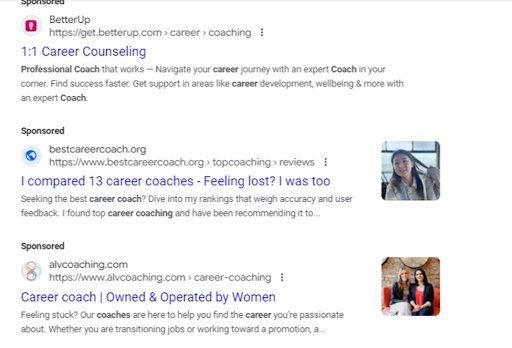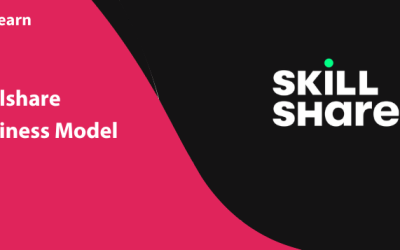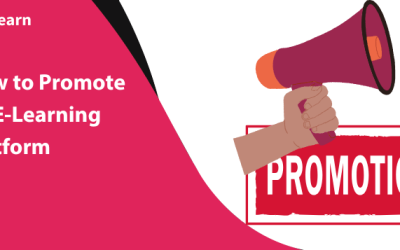How to Become a Career Coach: An Expert Guide
Do you have the essential skills to help people advance in their careers? Career coaching could be your dream career! It is a fulfilling and rewarding profession where you help people discover their maximum potential and overcome their career challenges.
Yes, you need to have significant knowledge, skills, and expertise to help other people climb up their career ladder. But, if you have considerable expertise in a specific industry, have navigated through career dilemmas, or built a successful career, you could start as a career coach!
But you might have several questions if you are a new career coach. How do I become a career coach? Do I need a certification to get started?
Let’s explore all this in this comprehensive career coaching blog. So, are you ready to embark on a fulfilling journey?
What is Career Coaching?
Career coaching involves assessing people’s interests, aptitude and skills, guiding them to make informed decisions and exploring their right career path.
People often confuse career coaches with career counselors. However, they both adopt different approaches. A career counselor assesses your skills with personality tests and discovers the potential career path. A career coach adopts a goal-oriented approach. They help you find a new job, get promoted, and earn a salary hike, etc.
Career counselors are ideal for students who are struggling to find the right career path. On the other hand, coaches are best for professionals who want to progress in their careers.
What Does a Career Coach Do?
Before mastering the steps on becoming a career coach, let’s understand what career coaches do!
Here are the list of tasks that would help to get a better grasp of the role of a career coach:
- Plan your career: Career coaches help clients to set goals and explore the right career path.
- Career transitions: Coaches help people who are in the middle of their careers and want to make successful career pivots.
- Prepare for Interviews: Craft pitch-perfect CVs and cover letters, and prepare interview questions. Chisel hard skills and soft skills like negotiation, body language, etc.
- Job Search: Explore new job opportunities and improve your job search skills.
- Define Action Plan: Assess your strengths and weaknesses and define a perfect coaching action plan.
- Networking: They help you build a successful network and leverage the connections.
- Confidence and Clarity: Coaches offer clarity if you are struggling to choose between two equally good offers.
How to Become a Career Coach in 7 Steps
The career coaching market was $17.6 billion in 2023. So, career coaching is indubitably a lucrative career to build your coaching business.
Here’s a quick roadmap for becoming a career coach:
Step 1: Get Certified
One of the most common questions aspiring coaches ask is whether you need to be certified to start as a career coach. The answer is no — you don’t need a valid certification or specific credentials to start as a career coach.
If you plan to work full-time as a career coach, pursuing a certification from a coaching school or institute can provide you the necessary foothold to get started. You can even take an appropriate online course.
Some of the certifications for a successful sprint as a career coach are:
- Board Certified Coach (BCC)
- Career Coach Certification by the International Association of Career Coaches
- Associate Certified Coach by ICF
- Professional Certified Coach by ICF
- Certified Professional Career Coach (CPCC)
Besides, having an educational background in human resources, psychology, counseling, or education is beneficial for becoming a career coach.
Step 2: Choose a Career Niche
Once you get certified, it’s time to pick a profitable career coaching niche. While all career coaches help professionals progress in their profession, you need expertise in that industry or problem to make it big.
A simple Google search would reveal that several career coaches specialize in different niches and have unique business propositions.

These are a few lucrative career niches you can play in:
- Traditional Career Coaching
- Executive Career Coaching
- Leadership Career Coaching
- Outplacement Career Coaching
- Career Transition Coaching
- Performance Coaching
- Interview & Soft Skill Coaching
- Coaching a specific industry, age group, company, or other demographics
Finding your coaching niche is a process. Figure out your unique expertise, experience, expertise, or any specific skill or significant challenge you have endured. For example, you might have conducted thousands of interviews or helped many people craft powerful CVs or cover letters.
Want to create a unique business proposition? Combine two career niches and add your extra two cents! For instance, you could be a career coach and a personal branding expert.
In short, your niche depends on who you want to serve and the outcome you want to support them.
Step 3: Define Your Ideal Clients
Now that you have figured out your niche, it’s time to create a persona for your ideal client. Who is your ideal client? What are their expectations, interests, needs, pain points?
Understand their frustrations and ideal outcomes, and figure out how to bridge the gap to achieve this transformation.
Understanding your ideal client’s story helps craft the right offer! Research or speak directly with your coaching clients to better understand their key focus areas.
Interview 20-30 clients and research your ideal customers. This will help you gain deeper insights into your ideal clients.
Ask the right questions like:
- What are the struggles & frustrations that you’re facing in your life?
- What is your dream job?
- What steps are you taking to achieve your outcome?
- What would your ideal customers look like?
Further, you can end your conversation by adding that you are offering a similar product.
Tip: Don’t make the mistake of creating the entire program without any research.
Step 4: Work with Actual Clients
Once you have gained a grasp of whom you will serve, you can start pro bono. Before you start as a full-time career coach, you can offer free or low-cost coaching sessions.
You can gain considerable experience with small gigs on freelancing websites like Upwork, Fiverr, LinkedIn ProFinder, etc. You can find people seeking resume writers, interview coaching, etc. You can earn anywhere from $50-$100 from these short-term gigs.
Once you gain significant experience and learn the ropes of trade, you are ready to run out onto the field to begin the play!
Step 5: Create an Irresistible Coaching Offer & Define Pricing
Now, it’s time to craft your first offer by bridging the gap between your expertise and the transformation your clients wish to achieve!
For instance, if you know your area of improvement is interview preparation, find out what your clients are expecting and their pain points. Now, deliver group sessions to a group of 5 students every week. These sessions are live, and you can also get feedback at the end of the program.
This way, you know what you’re missing and also get a full-fledged coaching program at the end of this session. If you plan to switch from a 9-5 job to a full-time coaching session, gradually increase the prices.
Some of the different pricing models for your career coaching sessions are:
- Hourly Rate: The average hourly rate for career coaching sessions is around $75 to $100 per session.
- Coaching Programs: You can even combine different sessions and create a coaching package. For instance, you could offer a $1,500 package for three months.
- Group Coaching: Here, you offer the same private personalized services to multiple students, increasing your revenue.
Consider factors like experience, qualifications, niche, session frequency, scope of the coaching sessions, etc., to decide on fair pricing. Stop lowballing your prices; your prices should reflect your coaching program’s value and strike a balance with market trends!
Step 6: Promote Your Coaching Services
Once you create the pitch-perfect offer, you need to market your coaching offer enough!
“Good marketing makes the company look smart, while great marketing makes your clients believe they have made a smart decision.”
Analyze where your audience is from and the platforms your clients frequently hang out.
Consider investing in the right marketing strategies to spread the word:
- Create SEO-optimized professional websites and advertise your testimonials on professional websites.
- Build your brand on social media platforms like LinkedIn, Facebook, Twitter, and Instagram. Craft an effective bio and create valuable content.
- Evaluate the top trends and create niche-related blogs.
- Attend industry and networking events to build your network.
- Interview on your niche-related podcasts or start your own podcast channel.
- Host virtual events and speaking engagements to win referrals.
- Guest on 5 to 10 podcasts related to your niche.
- Join a community of career coaches and get referrals.
- Leverage Google Ads, Instagram Ads, and Facebook Ads depending on your target audience.
- Offer free coaching sessions to demonstrate your coaching skills.
Step 7: Scale Your Coaching Business
While you might have achieved significant success with your coaching business, your business needs to grow!
Some of the best ways to scale your coaching business are:
- Increase the prices of your coaching services
Start with a low price initially. Over time, assess your professional goals and skills and gradually increase your prices. Add more value to your coaching program by offering personalized action plans, additional resources, etc.
- Refine your coaching services
While your first coaching program might be a rough framework, you can chisel off your program and refine it with the feedback. Remember, you cannot craft a signature program overnight, it is an ongoing process!
- Diversify your coaching business
Once you have established significant experience with one-to-one coaching, you can diversify your coaching services to group coaching. Here, you can serve multiple clients using the same offer and thus maximize time, effort, and impact. Furthermore, if your coaching program is performing well, sell an online course or ebook.
- Expand your marketing channels, strategies
Don’t rely on a single marketing strategy or channel, this could be dangerous for your business. And can turn out to be the ultimate recipe for failure.
- Hire more staff and virtual assistant
Once you expand your business, you cannot personally attend all the coaching calls; hire an assistant coach to handle multiple clients. Consider hiring a virtual assistant to streamline the administrative work and focus on growing your business.
What are the Pitfalls for Becoming a Career Coach?
- Marketing your coaching program as a product
Coaching is the greatest transformational journey of mankind. Don’t promote your coaching services as a product with features but rather as a transformation. Eg
- Lowballing your prices
Pricing too low while starting out can lead to associating your coaching services with the prices.
- Not finding the right niche or niching down
Offering generalized coaching and trying to be a jack of all trades won’t help you establish authority.
- Lack of sufficient training as a coach
While many people hang the shingle of a coach, they often lack training for deep coaching or knowledge on tools and processes of how actual coaching works!
- Not asking the right questions required for achieving outcomes.
Although asking powerful and engaging questions can help, expert coaches carve personalized paths through deep experience.
How Much Can I Earn as a Career Coach?
Coaching is a multi-billion dollar industry. Pursuing a coaching business as a career coach is certainly profitable. According to Ziprecruiter, career coaches earn around $46,678/ year, considering an hourly rate of $22. Meanwhile, the top career coaches earn around $60,000 – $71,500 yearly.
According to Glassdoor, the total salary range for a career coach is about $64K—$107K/year.
Executive coaching and performance coaching are the top-paying career coaching niches. With high-profile clientele, executive coaches earn around $200- $1,000 per hour. Alternatively, an IACC-certified career coach earns $137K yearly.
Plus, location, niche, experience, certification, skills, and market trends affect your earnings as a career coach.
Valuable Tips & Tricks for Career Coaches
1. Start Small
While starting your coaching journey, consider volunteering and offering coaching services at a lower price to your close acquaintances.
2. Find Your Own Community
Network with industry peers to find referral sources and drive inspiration for new content ideas. Join popular membership programs such as the National Resume Writers Association and Career Directors International.
3. Equip Yourself With Advanced Certifications
Continually grow and evolve with new niche trends and advancements in the industry. Explore different types of certification, such as leadership coaching,career coaching or resilience certification.
4. Charge for Value, Not Time
Decide an optimum price based on the value of the transformation you’re offering and not on your time.
5. Spend on Branding Once You Find Paying Clients
First, focus on finding paying clients, then spend more on branding and website creation.
6. Create a Beta Offer and Scale Overtime
Start by creating a beta offer, test it on 5-6 clients, and improvise it with client feedback during your coaching journey.
Successful Career Coaches and their Strategies
Now, look at some successful career coaches who have aced the coaching game.
Tammy Goeler Loeb
With a successful career sprint of over thirty years, Tammy Goeler Loeb is a mastermind offering one-to-one coaching and executive leadership. An entrepreneur, author, and leadership coach, Tammy adopts a revolutionary coaching approach.
“Work From Inside Out” is her best-selling book that clears misconceptions about career paths and helps readers live their dream career.
She offers each client a unique, actionable plan and manages and tracks their progress along the way. In addition to leadership coaching, Tammy also offers guidance on career advancements and defines career trajectories, whether you’re facing a catch-22 or stuck in a specific position!

Tania Mendes
A career success coach, Tania Mendes specializes in women’s coaching and guides women to explore opportunities, get promoted and negotiate their salaries. She uses self-assessment, mentorship, and networking as methodologies to help clients kickstart their careers.

The 8-week “Revamp Career Camp” and “9toThrive Boot Camp” are her popular coaching programs designed to equip clients to climb the top of the success ladder.
Revamp Career Camp focuses on equipping participants with the essential tools, negotiation skills, and the establishment of a strong personal brand.
On the other hand, the “9toThrive Bootcamp” is based on goal setting, interview preparation, resume writing, mindset shifting, personality and strength testing.
So, finally it’s a wrap! We have a bonus section that might help you take your first significant entrepreneurial step!
Step Up Your Coaching Game with Pinlearn
After reading this blog, you might be adept with the essential duties of a career coach, the detailed steps to becoming one, and some practical advice!
While career coaching is fulfilling and profitable, you must build on the essential expertise and skills to become a coach. Most importantly, you must have a unique business proposition to stand out in the industry!
Don’t limit yourself to a single income stream or marketing channel; map a clear roadmap for your coaching business. Once you have established your domain authority, you can leverage a clone script like Pinlearn to build a robust coaching academy. You can create a vibrant community offering 1:1 and group coaching calls, live events, memberships, online courses, etc.,with the white labeled ready made script.
So, are you ready to become the next coaching leader?
Other Coaching Programs:
How to Start Life Coaching Business?
How to Start a Financial Coaching Business?
How to Become an Online Nutrition Coach?
How to Become an Online Fitness Coach?
FAQ-Related to How to Become a Career Coach
1. What are the credentials you need to be a career coach?
There are no necessary credentials required to be a career coach. Having an educational background in psychology, human resources, education, or counseling helps you get started as a career coach. Additionally, you can get certified from a recognized certification institute like ICF.
2. How to be a career coach?
Start by getting certified, identify a niche, define your coaching services, create your coaching program, promote your coaching services, and scale your coaching business.
3. Is career coaching really profitable?
WIth a $17.6 billion market size, career coaching is in demand. On an average, a career coach in the United States can earn an hourly rate of $22 per hour. Factors like niche, experience, skill, location, market trends, influences your prices as a career coach.





